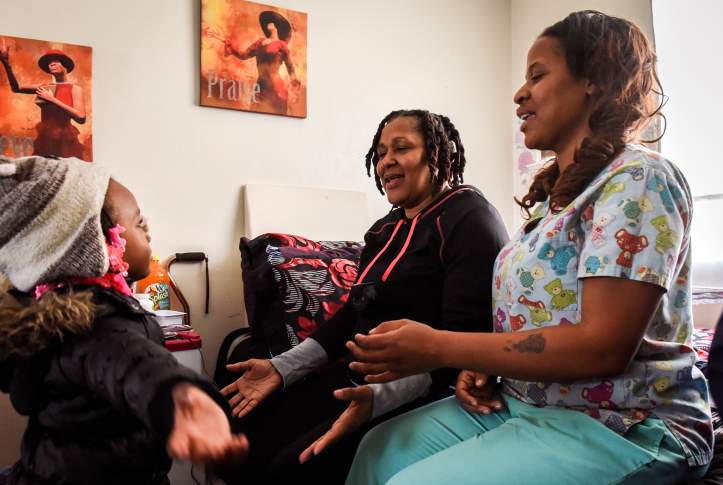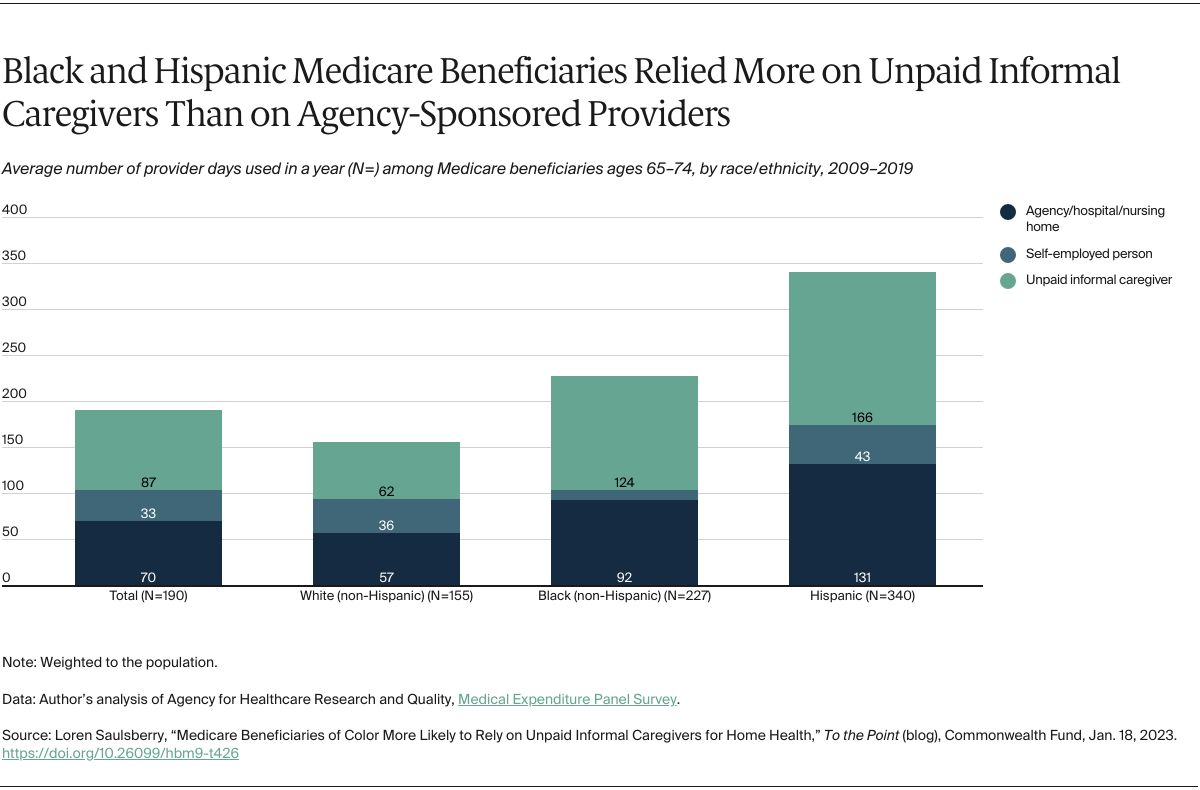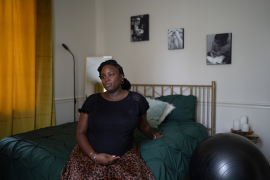Many older Americans who require postacute services — for instance, care after a hospitalization or an injury — or help managing chronic health conditions use home health care services, which may include skilled nursing care, physical and occupational therapy, speech therapy, and in-home social services, such as providing a social worker to facilitate connections with helpful community resources.
Prior research shows that Black and Hispanic beneficiaries using home health services are more likely than white beneficiaries to have poor health outcomes, such as emergency department visits and hospitalizations. Research has shown an association between such adverse health outcomes and higher use of low-quality home health agencies, as well as an elevated risk of mortality for older adults who are taken care of by informal caregivers. These studies indicate that the source of home health care provided to older adults, especially minority populations, may significantly impact health outcomes.
We examined a nationally representative survey of noninstitutionalized (i.e., people who live in their homes rather than an institution) Medicare beneficiaries to assess the use of different types of home health care providers — that is, home health services and unpaid informal caregivers, who are often family members — by the race and ethnicity of beneficiaries.
We found that Medicare beneficiaries of color used more home health care services than white beneficiaries overall and that Medicare beneficiaries of color were more likely to rely on unpaid informal caregivers for their home health care needs than did white beneficiaries.
Among home health users, Black (non-Hispanic) and Hispanic Medicare beneficiaries reported, on average, that they received care from home health care providers more than seven months in a year, about half of that time from unpaid informal caregivers. Both Black (non-Hispanic) Medicare beneficiaries and Hispanic beneficiaries were more likely to report using unpaid informal caregivers than agency providers. White Medicare beneficiaries, alternatively, reported receiving in-home provider care for approximately five months per year, and almost equal use of unpaid informal caregivers and agency-sponsored providers.





